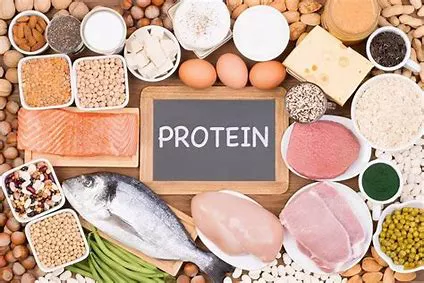For many people who engage in fitness activities, losing weight and building muscle are often intertwined goals. One key aspect of achieving these goals is understanding the importance and timing of protein intake after exercise. This article delves into the science behind post-workout protein intake, debunks common myths, and provides practical guidance on when to take protein after exercise.
Understanding the Function of Proteins
Before delving into the details of post-exercise protein timing, it’s important to understand why protein is so crucial for your body. Protein is often referred to as “the building blocks of muscle” because of its role in muscle protein synthesis (MPS). MPS is the process by which the body uses the amino acids from the protein you consume to repair and grow new muscle tissue.
There are 20 amino acids, of which 9 are essential and must be obtained through food. These essential amino acids are crucial for various bodily functions, including muscle growth, immune function, and hormonal balance.
The synthetic metabolic window: misunderstanding?
For years, fitness enthusiasts have been told that there is a brief window of time immediately after exercise – informally referred to as the “anabolic window” – during which protein can be consumed to maximize gains. My belief is that if you don’t consume protein during this window, you’ll miss out on the best benefits of muscle repair and growth.
However, recent research has provided a new perspective on this concept. While your muscles do enter a repair and growth phase after exercise, the so-called anabolic window is not as narrow as previously thought. In fact, consuming protein within a few hours after exercise is often sufficient to stimulate MPS.
The Importance of Protein after Exercise
Despite the misconception that the anabolic window is narrow, it cannot be denied that the importance of protein intake after exercise is significant. The reasons are as follows:
Muscle protein synthesis (MPS)
After exercise, your muscles break down, and consuming protein provides the amino acids needed to begin the repair and growth process.
Glycogen replenishment
Proteins also help to supplement glycogen reserves, which are depleted during exercise.
Muscle protein breakdown (MPB)
Strength training will increase MPS and MPB.
The Best Time to Consume Protein After Exercise
Now that we have established the importance of protein after exercise, let’s discuss the best time to consume it. While the anabolic window is not as narrow as previously thought, consuming protein within a reasonable time frame after exercise still has benefits.
Within 30 minutes to 1 hour.
It is generally believed that consuming protein within 30 minutes to an hour after exercise is the best.
Within 2 to 3 hours.
If you are unable to consume protein within the first hour after exercise, don’t worry. Consuming it within 2 to 3 hours is still beneficial.
How much protein should you consume?
The quality of protein you should consume after exercise depends on several factors, including your age, gender, weight, activity level, and fitness goals. However, you can follow some general guidelines:
The general advice
The recommended dietary intake (RDA) of protein for healthy adults who are sedentary is 0.8 grams of protein per kilogram of body weight per day.
Athletes and active individuals
Athletes, active individuals, or those who want to increase their muscle mass through exercise need a higher level of protein.
The protein content after exercise
Studies suggest that the amount of protein that can be used for muscle synthesis may range from 20 to 40 grams.
The Best High-Protein Snacks
When it comes to protein snacks after exercise, quality is often more important than quantity. Here are some high-protein options to consider:
Protein shakes: Protein shakes are convenient and easy to digest, making them a popular choice after exercise.
Greek yogurt: Greek yogurt is rich in protein and probiotics, making it an excellent snack for promoting muscle recovery and gut health.
Chicken breast: Chicken breast is a lean source of protein that is easy to prepare and can be cooked or eaten raw (such as in a protein shake).
Egg: A whole egg is a complete source of protein and contains all nine essential amino acids. Scrambled eggs, boiled eggs, or omelets are versatile and delicious post-workout snacks.
Creamy cheese: Another high-protein dairy product option, white cream cheese is rich in casein, which digests slowly, making it an excellent choice for sustained muscle recovery.
Practical Tips for Protein Intake after Exercise
Plan ahead: know what you’ll eat after your workout and prepare accordingly.
Listen to your body: pay attention to how your body feels after exercise.
Hydrates: Don’t forget to replenish your water after exercise.
Mix it up: Change your protein sources to ensure you get a variety of amino acids.
Conclusion
Post-workout protein intake is a crucial aspect of achieving your fitness goals, whether you’re looking to lose weight or build muscle. While the concept of a narrow anabolic window has been largely debunked, consuming protein within a few hours post-workout is still beneficial for stimulating muscle protein synthesis and replenishing glycogen stores.
Remember to focus on the quality of your protein sources and aim for a balanced intake that meets your individual needs. With the right nutrition plan in place, you’ll be well-equipped to tackle your next workout and achieve your fitness goals.
Related topic:


